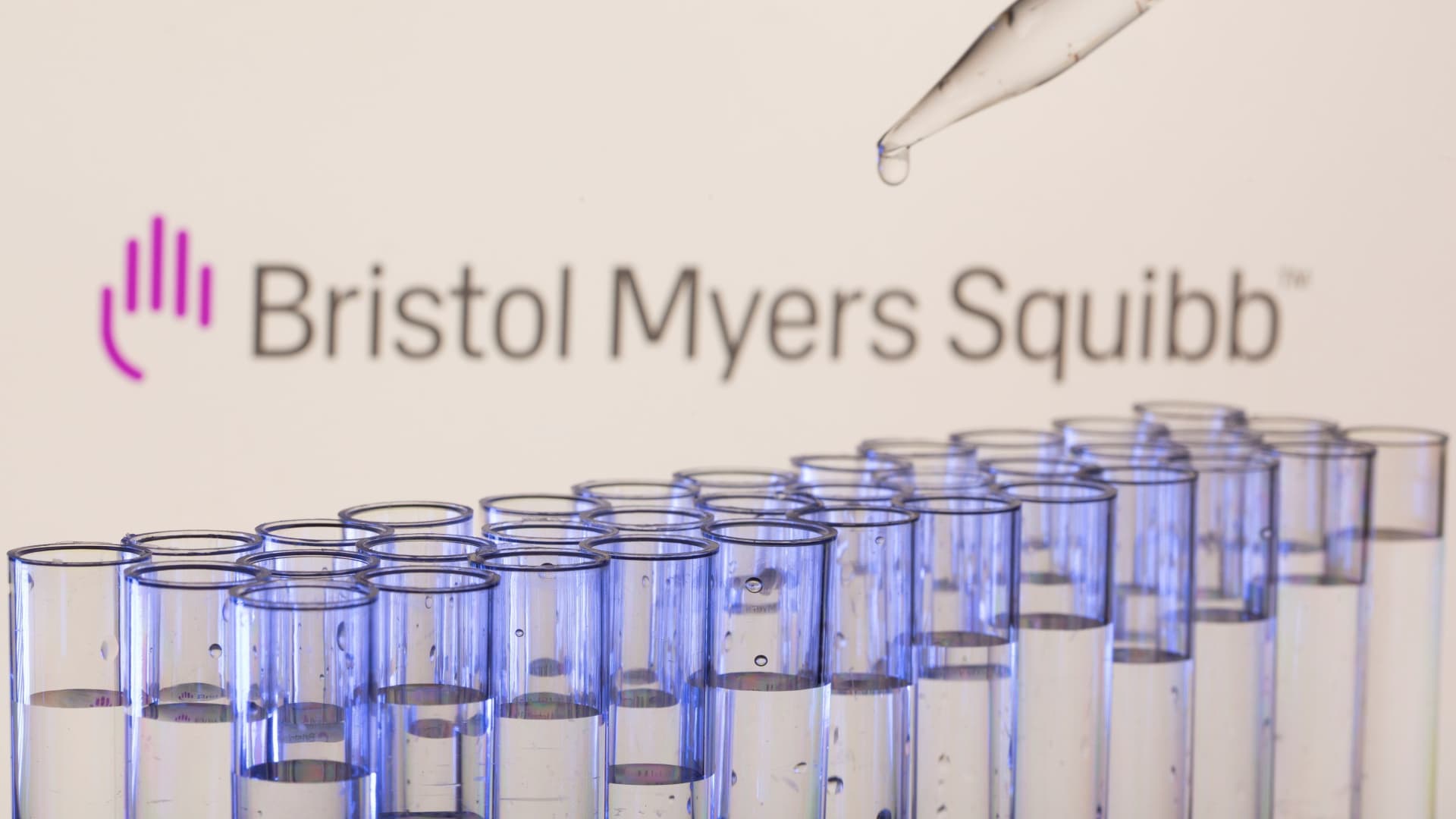Products You May Like
Bristol Myers Squibb on Thursday reported quarterly adjusted earnings that topped expectations and posted revenue in line with estimates, even as sales of the company’s popular blood cancer drug Revlimid plummeted due to generic competition.
Bristol Myers, one of the world’s largest pharmaceutical companies, raked in $10.96 billion in revenue for the third quarter, down 2% from the same period last year.
The drugmaker said that decline was due to lower sales of Revlimid, which generated $1.43 billion for the quarter. Bristol Myers has been under pressure to launch or acquire new drug products as Revlimid – and eventually, other top-selling treatments such as blood thinner Eliquis and cancer immunotherapy Opdivo – competes with cheaper generic versions.
Revlimid sales, which fell 41% from the third quarter of 2022, also dropped due to an increase in patients receiving the drug at no cost through the company’s patient assistance foundation, Bristol Myers said.
Bristol Myers’ existing drugs and the potential for new drug launches give the company confidence in its ability to navigate Revlimid’s patent expiration through 2025, outgoing CEO Giovanni Caforio said during an earnings call.
The company reported net income of $1.93 billion, or 93 cents per share. That compares with a net income of $1.61 billion, or 75 cents per share, for the year-ago period. Excluding certain items, adjusted earnings per share were $2 for the period.
Here’s what Bristol Myers Squibb reported for the third quarter compared with what Wall Street was expecting, based on a survey of analysts by LSEG, formerly known as Refinitiv:
- Earnings per share: $2 adjusted vs. $1.76 expected
- Revenue: $10.96 billion vs. $10.96 billion expected
Shares of Bristol Myers closed more than 6% lower Thursday and hit a new 52-week low. The stock is down more than 26% for the year, putting the company’s market value at roughly $110 billion.
Bristol Myers narrowed its full-year adjusted earnings outlook to $7.50 to $7.65 per share, from a previous forecast of $7.35 to $7.65 a share. Bristol Myers also reiterated its full-year revenue guidance of a low single-digit percentage decline.
Notably, the company hiked its full-year revenue projection for Revlimid to $6 billion from $5.5 billion in July, even as the drug sees falling sales. Bristol Myers also said it expects its new drug portfolio to rake in about $3.5 billion this year.
However, the company pushed back its timeframe for its new drugs to hit $10 billion in sales to 2026, incoming CEO Christopher Boerner said during the earnings call. The drugmaker had previously forecast $10 billion to $13 billion of sales for the portfolio in 2025.
Bristol Myers said both older and new drug products helped offset the lower sales of Revlimid for the third quarter.
Eliquis raked in $2.71 billion in sales for the quarter and Opdivo generated $2.28 billion, up 2% and 11% from the year-ago period, respectively. However, both drugs fell short of analyst estimates compiled by FactSet.
Eliquis, which Bristol Myers shares with Pfizer, is among the first 10 drugs selected to face price negotiations with the federal Medicare program.
Meanwhile, a portfolio of several newer products booked $928 million in sales for the quarter, up 68% from the year-ago period. Bristol Myers said that growth was primarily driven by higher demand, including for prescription anemia medication Reblozyl, which generated $248 million in sales for the quarter.
Skin cancer drug Opdualag also raked in $166 million in sales for the third quarter, which is up 98% from the same quarter a year ago. Those two drugs missed analyst sales estimates compiled by FactSet.
Don’t miss these CNBC PRO stories:
- Want to retire in 5 years? Here’s how to invest for it, according to the pros
- Morgan Stanley says the average stock is breaking down, S&P 500 to fall to 3,900 by year-end
- This highly profitable industry is booming as the population ages
- This chip stock is getting a ton of love from Wall Street, and it’s not Nvidia
